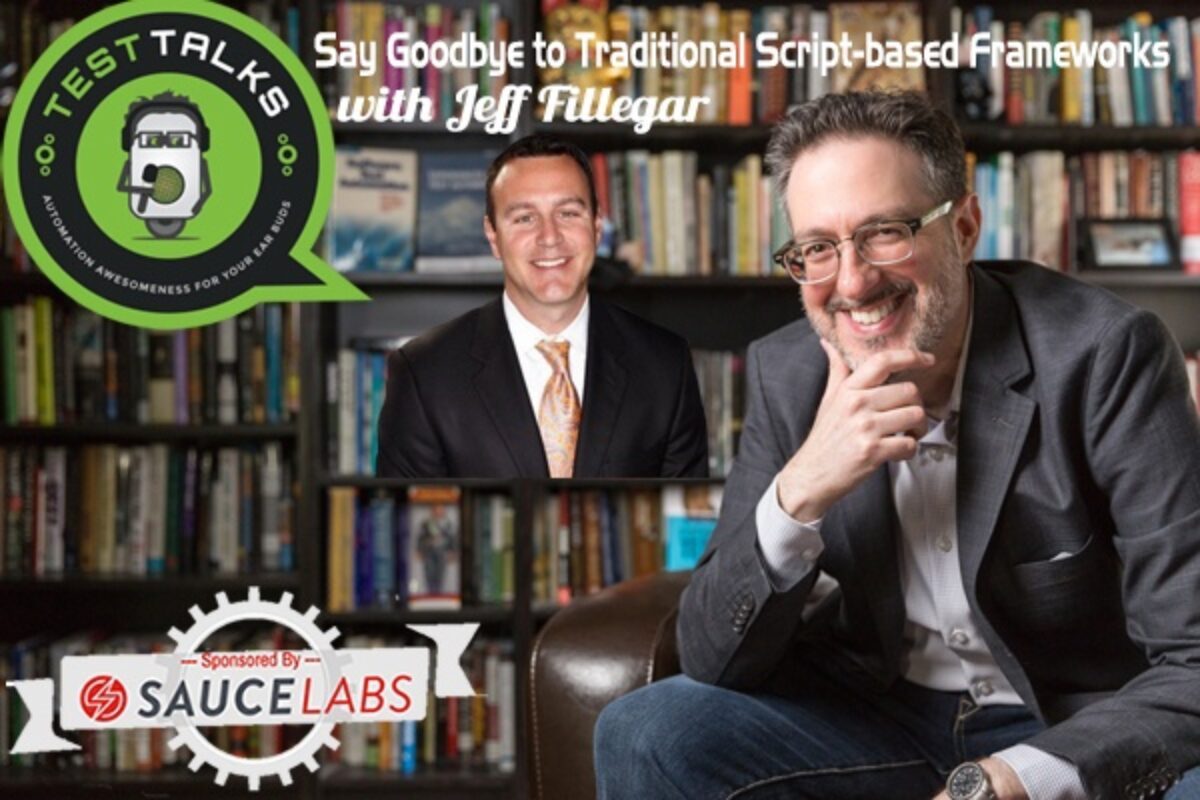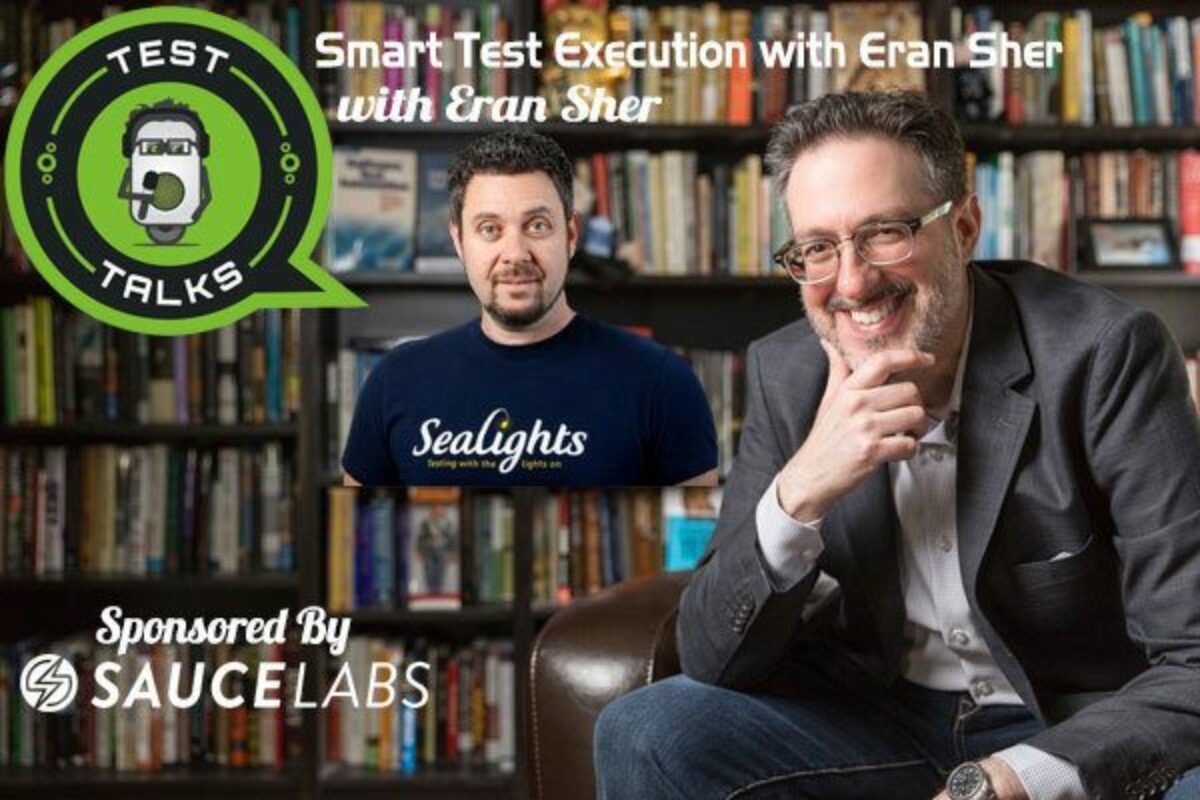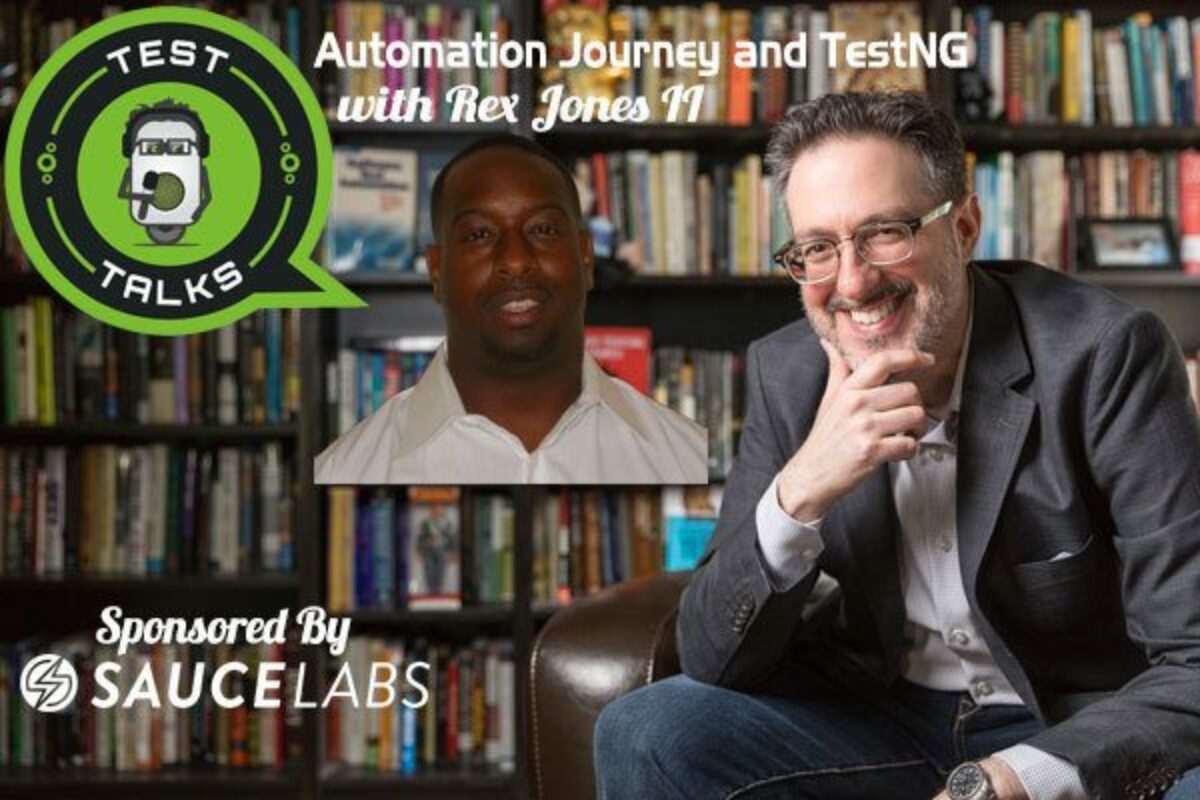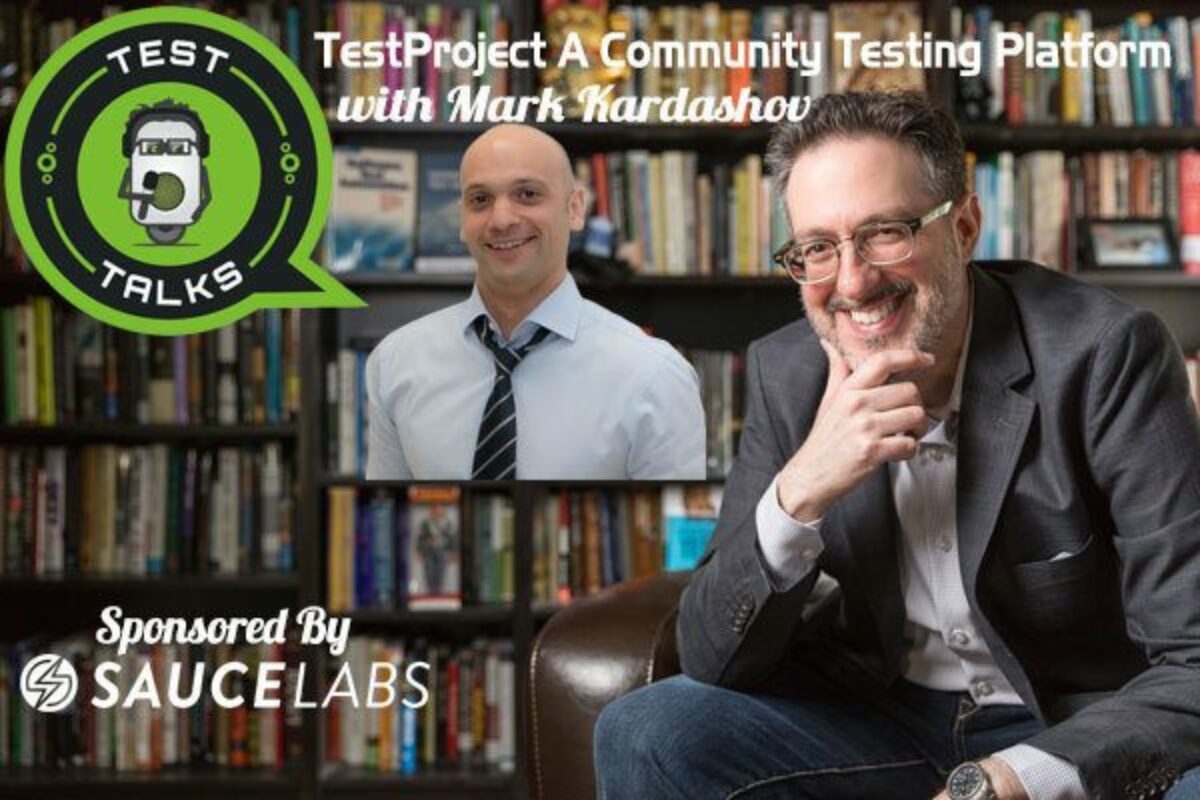In this episode you’ll discover how to say goodbye to traditional, script-based frameworks as we Test Talk with Jeff Fillegar, a DevOps and QA consultant for Tricentis. Jeff was an automation engineer long before he began working for software tool vendors like HPE and Tricentis, so he really knows his stuff. And with his experience as an automation engineer, he knows some solutions vendors can offer to truly benefit testers in the real world.
About Jeff Fillegar
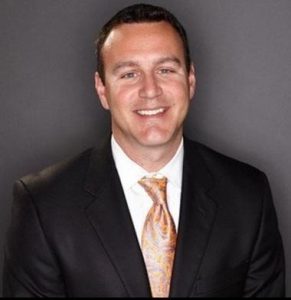
Jeff Fillegar has been in the enterprise software development and testing world for 15+ years. Jeff has held various roles at fortune 1000 companies from manual QA tester, to automation test developer to QA architect to director of development and QA. After that Jeff went into the consulting business where he worked for various companies to help setup QA teams where he focused on strategy, process, procedures and tooling. Performed a lot of work around API test automation development and how that fits into sprints and end-to-end regression testing. After being a consultant, Jeff spent a few years at HPE Software supporting all of the ADM products and currently works for Tricentis where he focuses on helping customers succeed with their test automation projects using Tosca and Service Virtualization. To summarize Jeff has sat in the customer chair, consultant chair, and sales engineering chair so it gives him an interesting perspective when he talks to someone about QA testing and what the trends are and what’s working and what’s not.
Quotes & Insights from this Test Talk
- So you look at the entire dev ops tool chain from plan to code to build to testing to deployment monitoring. Right so a tire you know quote unquote dev SDLC right we used to call it what back in the early days SDLC now everyone calls. Just another name for it. DevTestOps and inside of that dev test OPs is continuous testing. So you've got continued development continuous integration. You've got continuous testing so you can do a build and want to run some test cases. After that in order to have that process automated through you know build server or whatever like Jenkins or TFS or something then you know you can use Tosca to perform that. And I think the advantage of Tricentis is and Tosca over the. So the other point solutions and the functional testing space is that you don't have to be a scripter in order to use the product.
- So you know obviously if you're using selenium it's primarily web based. But in the today's enterprise it's not just web based application. You got HP and Oracle and all these other mainframes still especially in the in the financial industry. And then you know mobile et cetera. So how can one as a Selenium user. You know if they're tasked with building some end to end type scenarios or if they need to know call an API or or you know go check a transaction in sales force or SAP you know you can't do that Selenium so you have to use another product. If I'm a tester I don't want to use multiple tools to build one test case. You know modularize a test case and then Daisy Chain them. I rather just from an execution perspective rather just run off one execution agent. And I think that's why you see the movement towards products like Tricentis. It covers all different types of technologies not just web
- When we say codeless/script less it really is script less. It's all configuration it's all setting it up and having some intelligence behind it to build these models and if something changes it can alert that hey there's been a change or actually do some self-healing. So same concept with Tosca. You go out and you learn the application or test and it will build the model and then from it's all drag and drop based no coding no scripting. And I can create test cases based off of my models and then I can extrapolate the data out of the model from where I was learning it and I can build a complete data model so I have all my different scenarios. And I've done all that without writing a single line of code.
- So our risk based testing module inside of Tosca allows the end user to to look at or say we've got you know 50 different scenarios right. And you could put different weights on them. Tosca will spit out based on the information, based on the weighting, based on the data usage these are the ones that you should be executing if you're in a time box. So we've seen a drastic reduction at certain customers where we had a customer at a couple of thousand test cases and we got them down to 600 and they were still having the same amount of coverage that they did previously with you know 60 percent less execution time and a lot less maintenance.
Connect with Jeff Fillegar
May I Ask You For a Favor?
Thanks again for listening to the show. If it has helped you in any way, shape or form, please share it using the social media buttons you see on the page.
Additionally, reviews for the podcast on iTunes are extremely helpful and greatly appreciated! They do matter in the rankings of the show and I read each and every one of them.
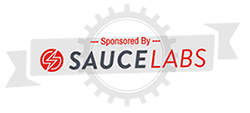
Test Talks is sponsored by the fantastic folks at Sauce Labs. Try it for free today!

